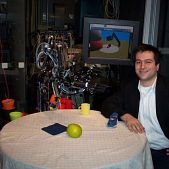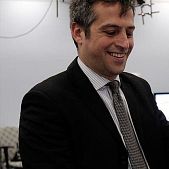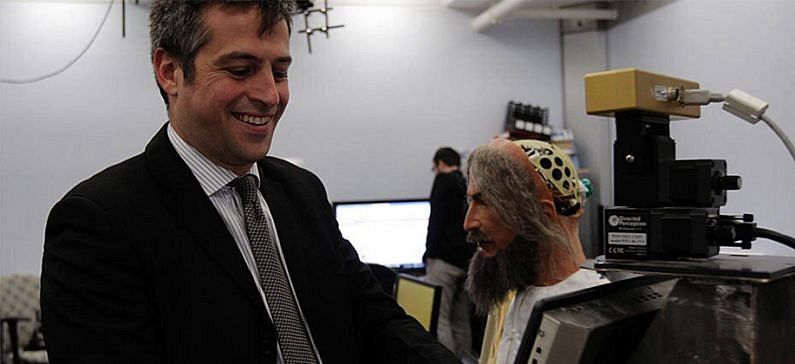
The creator of the first Arabic-speaking humanoid robot
Nikolaos Mavridis is a Startup Mentor at both the Enterprise Forum of the Massachusetts Institute of Technology (MIT) and FasterCapital and an Academic and Counselor in Robotics and Artificial Intelligence. He is also the founder and director of the Interactive Robots and Media Lab (IRML) and has been a professor at many institutions worldwide.
His research interests include human-robot interaction, and especially verbal and non-verbal communication with robots, artificial intelligence, machine perception, and cognitive systems.
Both he and his work have received significant media attention in the past. His work at the Interactive Robots and Media Lab received coverage from media of over than 20 countries, such as the BBC, Agence France-Presse (AFP), The National (Abu Dhabi), Al Jazeera TV etc. Moreover, he is a regular speaker at TEDx in Greece and abroad.
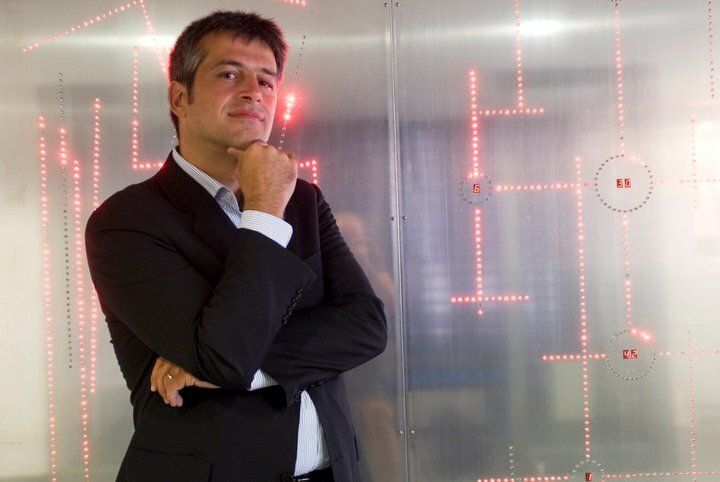
Nikolaos Mavridis was born on April 28, 1973, studied at the Department of Mechanical Engineering of the Aristotle University of Thessaloniki, specializing in Computers and Electronics. He received a Masters degree from the University of California at Los Angeles and a Ph.D. from MIT.
Moreover, shortly before his Ph.D., he was awarded M.Sc. from the University of California, Los Angeles, and M. Eng. (Summa Cum Laude) from the Aristotle University of Thessaloniki.
He started as a researcher at the Informatics and Telematics Institute and continued at MIT for five years (2002-2007), in the field of interactive robots and language, visual and facial recognition, as well as Det. & Rec activity. In 2007, he was employed by the University of the United Arab Emirates, where he worked until 2011. There, he was Founding Director of the Interactive Robots and Media Laboratory (IRML), as well as Assistant Professor of Intelligent Systems.
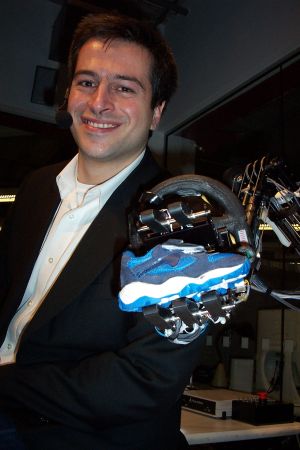
Later, he received a faculty position at the University of New York Abu Dhabi and was appointed Assistant Professor for the New York University Tandon School of Engineering at a later point, where he remained for 3 years.
Due to the death of his father, he decided to move the center of his activities to Greece while at the same time maintaining a strong presence in the Emirates. So in the period 2013-2016, he worked at NCSR Demokritos in Athens, the leading research center in Greece.
For the past seven years, he has been working as a Startup Mentor at MIT, where he consulting organizations in AI, robotics, and academic-related topics, teaching graduate courses and creating academic programs and curricula, supervising PhDs and other thesis.
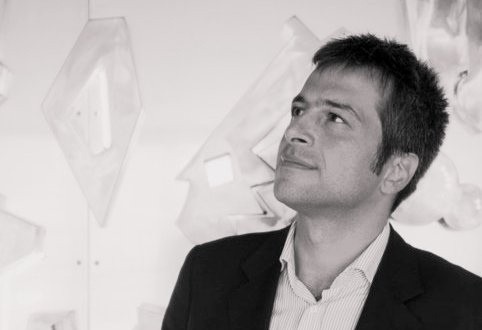
The professor is head of the 12-member robotics lab, which is funded by the Abu Dhabi authorities and managed to create the world’s first Arabic-Speaking dialogic Android robot, a machine that among others speaks and uses human facial expressions.
In more detail, the robot has software that allows it to see and detect faces and objects, as well as subsystems that allow it to start a conversation and convert words into text. It can also answer some questions, connect to the internet and show actions on its screen.
It has a gray beard, wears white burnoose and a turban, and is called “Avicenna”, by the name of the famous 11th-century famous Muslim philosopher and scientist Avicenna in the West.
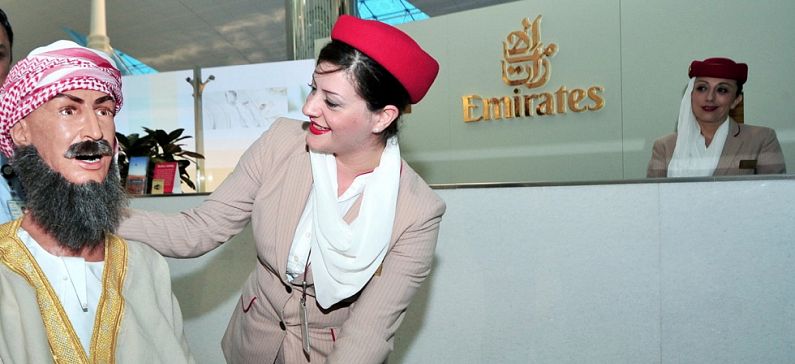
It took over a year for Nikolaos Mavridis to develop the program that is the robot’s mind, which includes the possibilities of vision, speech, memory and movement, and according to the mastermind, it is a matter of time until mass production begins in order to use it in business, shopping centers as a receptionist, salesman or other shop assistants.
The cost of developing Avicenna’s software reached about $ 200,000 and the group has received proposals from companies to commercialize the robot.
The Interactive Robots and Media Lab (IRML) has been developed as one of the leading interactive robots and media workshops in the wider region, hosting multiple cutting-edge projects, such as Microsoft’s “Facebots” and the United Arab Emirates Virtual Museum.

The researcher’s goal is to catalyze education-research-entrepreneurship in Robotics & Artificial Intelligence in the Gulf and the wider region and to create effective integration with relevant technologies such as the Internet of Things / Big Data / Smart Cities.
“Most importantly, my goal is to interconnect us with the world’s leading institutions and figures, and to enable entrepreneurship as well as social service / cultural activities to grow and thus create a better future with peace, harmony, and sustainable growth and prosperity, for my region and an ever-increasing part of humanity”, as he has said.
Apart from his academic activities, Mavridis has been an active pro-bono contributor to a number of organizations: as a mentor in The Next Generation Initiative, a vice-president and executive committee member at the MIT HSA, as a vice-president to the Hellenic Artificial Intelligence Society, as a bid preparer and presenter and technical committee member that brought the World Robot Olympiad to Abu Dhabi,[7] and as the founding chair of the IEEE UAE Robotics and Automation Society.
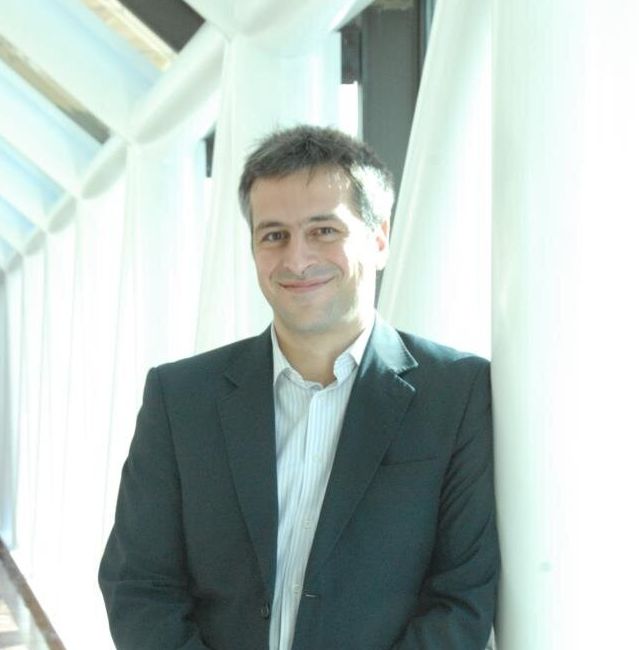
Nikolaos Mavridis is also an active member of the Horasis think tank based in Switzerland, whose purpose is to “enact visions for a sustainable future” through new platforms for cooperation and knowledge-sharing, particularly between developed countries and emerging markets.
In addition, he is a guest speaker at the World Forum for Democracy in Strasbourg, has been a TEDx speaker four times, including Athens and Geneva, and a speaker at the IEEE Summit on Artificial Intelligence and Ethics in Brussels.
To the question of the benefit of robots at a personal and social level, he replies that “An increasing number of unwanted work, physical or mental, could be transported by people to the machines, and an ever-increasing fraction of the earth’s population could enjoy unprecedented possibilities of substantial freedom: to fill their hours with activities that give them happiness, creation, exploration, discovery, and multifaceted contribution to their fellow human beings and the Public Good. Do what they really like and help in their personal development but also in wider beneficial purposes.
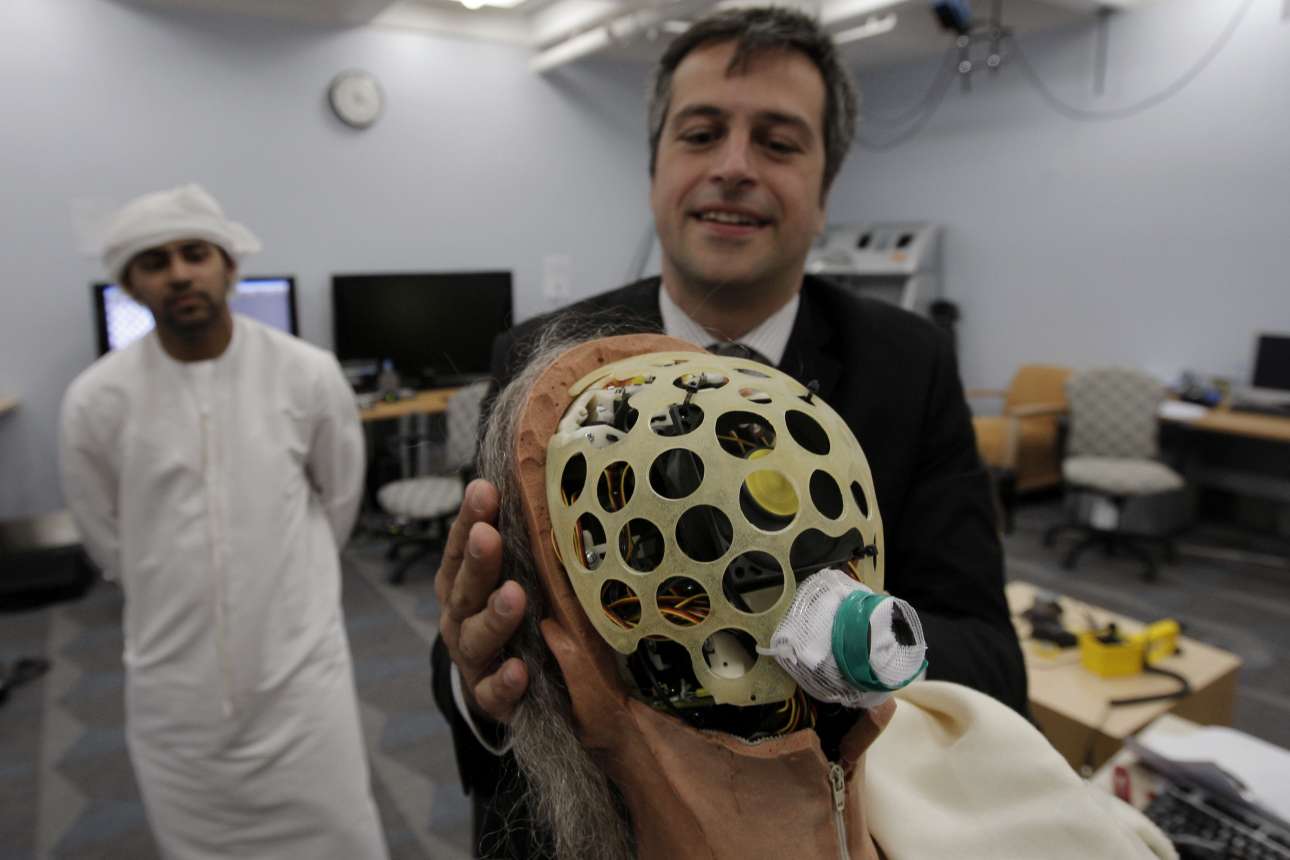
The release of a large part of the earth’s population from undesirable work, as well as the rapid increase in human potential, are certainly great promises. The most important promise, however, is a much more radical one; the prospect of redefining the relationship between work, money, livelihood, and the concept of life. ”
About whether humanity is ready to reorganize the states and reap the possibilities of technology and artificial intelligence, Nikolaos Mavridis answers that at this moment, only partially, and even that, is debatable. The reason, according to him, is that, in essence, an important gap, both theoretical and practical, becomes obvious.
He commented that there is a growing need for a new and innovative political-economic system, a new way to create relationships between money, work and life-meanings. “And the big players in the existing system may resist changes, even if they are done in a way that they do not strongly oppose them.”
 Source:mitefgreece.org
Source:mitefgreece.org
Finally, he says, among other things, that there are many aspects of the dark side of new possibilities, such as invisible electronic monitoring and psychological analysis, targeted subtle interventions in weaknesses (economic, love-life, desires and fears, and much more) everything would look like “unlucky luck” for anyone who can not see the overall picture and the mechanism that he orchestrated them.






